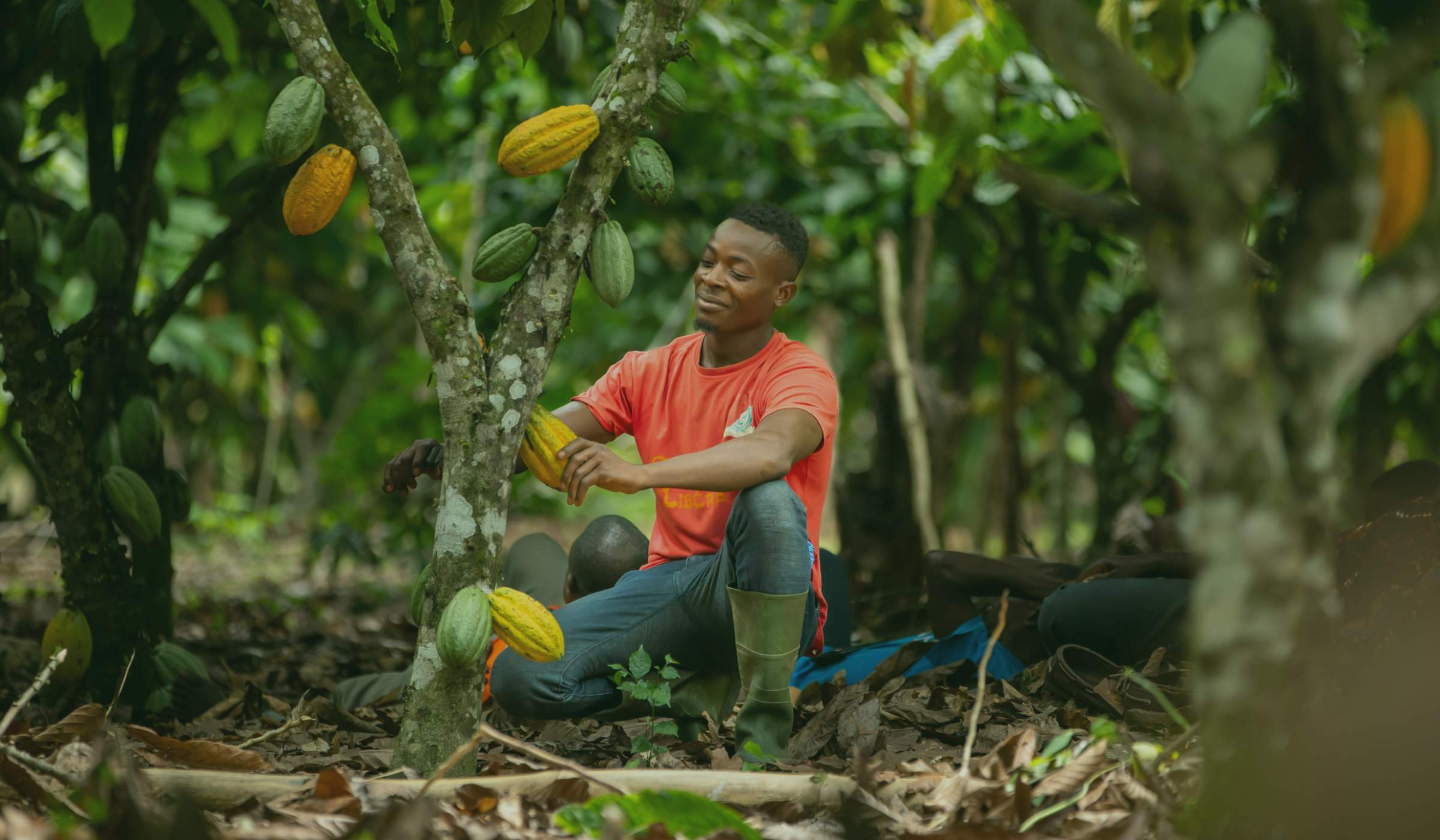
The African Regional Standard for Sustainable Cocoa is an important framework currently being implemented for cocoa grown in African countries such as Ghana and Côte d’Ivoire.
The African Regional Standard for Sustainable Cocoa (ARS-1000) was developed by the African Regional Organisation for Standardisation (ARSO) and establishes guidelines that support environmental, social and economic sustainability in African cocoa production.
If you haven not heard much about ARS-1000 yet, here are some key facts to know.
1. It’s a standard developed by African nations to professionalise the cocoa sector.
“ARS-1000 is a truly African framework. It was conceived by African governments to help drive modernisation across the cocoa sector and agriculture more broadly,” said Mawuli Coffie, Ghana country director for the World Cocoa Foundation (WCF).
ARS-1000 does not replace current voluntary standards such as Fairtrade or Rainforest Alliance in cocoa-growing regions today but rather can co-exist with them while taking the sector further forward in a more comprehensive way.
To help improve agricultural performance and best practices on cocoa farms, as well as safeguard human rights and environmentally protected areas, ARS-1000 includes requirements related to those farms’ management systems, cocoa quality, traceability and certification.
“This is a fantastic opportunity even if it will be challenging. Farmers and farmer groups will reach a new level of professionalisation in West Africa and move from non-formal operations to formal ones,” said Youssouf N’djoré, Côte d’Ivoire country director for WCF. “It will be a key tool to enhance sustainability in cocoa production by strengthening farmers’ skills and practices.”
2. It will help cocoa growers in Africa maintain access to European markets.
In addition to driving the cocoa sector’s professionalisation, ARS-1000 will help to build the compliance case for the cocoa produced in West Africa vis a vis new EU regulation.
The EU Deforestation Regulation (EUDR) and Corporate Sustainability Due Diligence Directive (CSDDD) will soon require importers into the EU to show that their cocoa and chocolate products are traceable, do not come from recently deforested areas and that they comply with local regulations.
Although compliance with ARS-1000 will not automatically translate to compliance with EUDR and CSDDD, it will help. For example, EUDR’s Article 10 calls for importers to conduct deforestation risk assessments of the products they bring in, something for which they can consider information provided by certification systems or third-party verification systems, including ARS1000. If cocoa is already certified under ARS-1000, that likely would serve as an adequate risk assessment since ARS-1000 will have both traceability and deforestation-free requirements.
The intent is for ARS-1000 to serve the same foundational role of due diligence under CDDD.
“ARS-1000 will play an important role in helping companies demonstrate that African cocoa and chocolate products they bring into the EU are compliant with EU regulations,” Coffie said. “In this sense, it will help African cocoa farmers stay connected to one of the world’s largest consumer markets.”
3. It’s currently being rolled out across Ghana and Côte d’Ivoire, and WCF is playing a role in this implementation.
ARS-1000 will be mandatory in both Côte d’Ivoire and Ghana, which enacted it in their regulatory frameworks through decree or executive order in 2022. The enforcement mechanisms are still being defined. But once ARS-1000 is fully implemented and deployed, all operators will need to adhere to it.
The Ghana Cocoa Board (COCOBOD) is currently providing training and field extension officers at the district level. WCF is helping develop Ghana’s operational manual, requirements for certification bodies and certification protocols.
In Côte d’Ivoire, farming cooperatives have been piloting the standard, and audits from the cooperatives involved are being conducted now. The country’s cocoa regulator – Le Conseil Café-Cacao (CCC) – is developing a strategy to expand and generalise ARS-1000 more broadly.
“WCF and member companies have been involved in this open and iterative process in Côte d’Ivoire from the beginning, to support farmer groups so they are ready,” N’djoré said.
Note: the full standard is available for download in English and French here